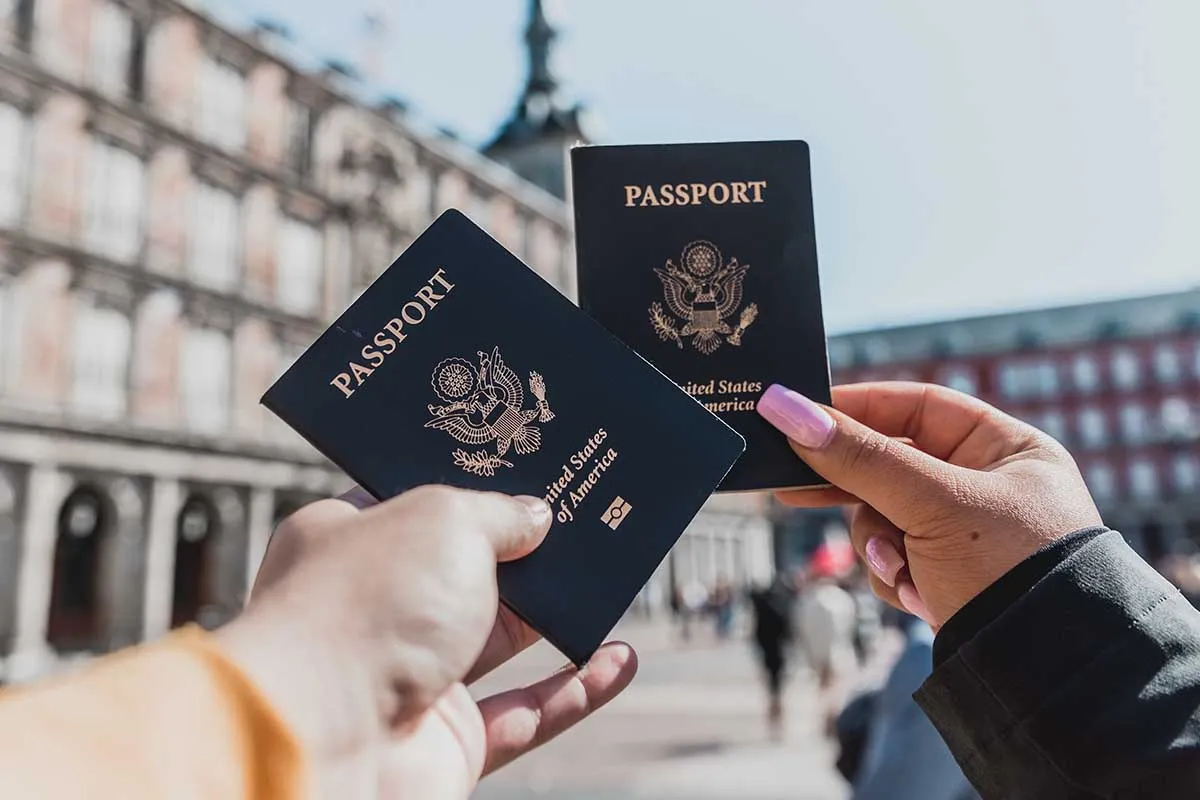How to Become a Travel Agent in USA ?

Introduction to Becoming a Travel Agent
Traveling the world, experiencing new cultures, and helping others create unforgettable memories are just a few of the reasons why many people aspire to become travel agents. Being a travel agent provides a unique opportunity to turn your passion for travel into a fulfilling career. In this article, we will explore the role and responsibilities of a travel agent, the steps to becoming one in the USA, the necessary education and certifications, building a strong network, essential skills for success, staying up-to-date in the ever-changing travel industry, marketing yourself effectively, and the tools and resources available to travel agents. So, let's embark on this exciting journey.
Get Your Passport Today!
The Role and Responsibilities of a Travel Agent
A travel agent serves as a bridge between travelers and their dream destinations. Their primary responsibility is to assist clients in planning and booking their trips. This involves researching travel options, such as flights, accommodations, and transportation, and providing recommendations based on clients' preferences and budgets. Additionally, travel agents handle reservations, coordinate itineraries, and provide necessary travel documents and information. They may also offer expertise on visa requirements, travel insurance, and local attractions, ensuring a smooth and enjoyable travel experience for their clients.
Steps to Becoming a Travel Agent in the USA
Becoming a travel agent in the USA involves several key steps. First, research the industry to gain a comprehensive understanding of the travel agency business. Next, decide on the type of travel agency you want to establish or work for, such as a corporate travel agency, leisure travel agency, or specialty travel agency. Then, consider obtaining relevant education and certifications, which we will explore further in the next section. Afterward, gain practical experience by working in the travel industry, either through internships or entry-level positions. Finally, establish your network of clients and industry contacts to kick-start your career as a travel agent.
Education and Certification Requirements
While formal education is not always a requirement to become a travel agent, it can significantly enhance your credibility and marketability. Many community colleges, vocational schools, and universities offer travel and tourism programs that cover essential topics such as travel industry operations, customer service, and geography. Additionally, several industry organizations provide certifications that demonstrate your expertise and commitment to professional development. Some widely recognized certifications include the Certified Travel Associate (CTA), Certified Travel Counselor (CTC), and Travel Agent Proficiency (TAP) certifications.
Building a Strong Travel Agent Network
Building a robust network is crucial for a travel agent's success. Start by attending travel industry events, conferences, and trade shows to connect with suppliers, fellow agents, and industry professionals. Joining professional associations and online communities can also provide valuable networking opportunities. Additionally, consider building relationships with local businesses, such as hotels, tour operators, and transportation companies, as they can become reliable partners and sources of referrals.
Developing Essential Skills for Success
To excel as a travel agent, certain skills are essential. Firstly, exceptional communication skills are vital for understanding clients' needs and effectively conveying travel information. Attention to detail is also critical to ensure accurate bookings and itineraries. Additionally, strong sales and negotiation skills can help secure the best deals and provide added value to clients. Finally, a passion for travel, adaptability, and problem-solving abilities will set you apart in a constantly evolving industry.
Navigating the Travel Industry and Staying Up-to-Date
The travel industry is dynamic, with trends, regulations, and technologies constantly evolving. To stay relevant, travel agents must actively engage in continuing education and remain up-to-date with industry news. Attend webinars, workshops, and seminars to expand your knowledge and stay informed about
Marketing Yourself as a Travel Agent
As a travel agent, effectively marketing yourself is crucial for attracting clients and growing your business. Here are some strategies to enhance your visibility and promote your services:
Develop a Strong Online Presence: Create a professional website that showcases your expertise, services, and testimonials from satisfied clients. Utilize SEO techniques to improve the website's visibility in SERP. Maintain an active presence on social media platforms relevant to the travel industry, engaging with potential clients and sharing valuable content.
Leverage Content Marketing: Establish yourself as a thought leader by creating and sharing high-quality content. Write informative blog posts about travel tips, destination highlights, and industry updates. Contribute guest articles to travel publications or collaborate with influencers to reach a wider audience.
Build Strategic Partnerships: Collaborate with complementary businesses such as hotels, airlines, or tour operators to create joint promotional campaigns or offer exclusive packages. Establishing referral programs can incentivize clients and other businesses to recommend your services.
Attend Travel Shows and Events: Participate in travel expos, trade shows, and networking events to connect with potential clients and industry professionals. Display eye-catching booth setups and distribute promotional materials to leave a lasting impression.
Harness the Power of Reviews and Testimonials: Encourage satisfied clients to leave reviews on platforms like Google, Yelp, or TripAdvisor. Positive feedback enhances your reputation and builds trust among potential clients. Incorporate testimonials on your website and social media platforms to showcase your credibility.
Tools and Resources for Travel Agents
The travel industry offers numerous tools and resources to streamline operations and enhance the customer experience. Here are some essential ones for travel agents:
Global Distribution Systems (GDS): GDS platforms like Amadeus, Sabre, and Travelport provide access to real-time inventory and allow you to book flights, accommodations, and car rentals. They offer comprehensive travel information and facilitate seamless transactions.
Customer Relationship Management (CRM) Software: CRM tools help manage client information, track interactions, and automate communication. They enable personalized marketing, timely follow-ups, and efficient client relationship management.
Travel Agency Management Software: These software solutions assist with itinerary creation, reservation management, accounting, and reporting. They optimize workflow and improve operational efficiency.
Travel Insurance Providers: Collaborating with reputable travel insurance companies allows you to offer comprehensive coverage to your clients. Research and partner with providers that align with your target market and offer competitive rates.
Destination and Travel Industry Associations: Joining associations like the American Society of Travel Advisors (ASTA) or the International Air Transport Association (IATA) provides access to industry resources, training programs, and networking opportunities. They offer support and help you stay informed about industry trends.
Challenges and Opportunities in the Travel Agent Industry
The travel agent industry presents both challenges and opportunities. It's important to be aware of these factors to navigate the market successfully:
Online Travel Agencies (OTAs): The rise of OTAs and direct online bookings has increased competition. Travel agents must differentiate themselves by offering personalized service, expertise, and value-added experiences.
Technology Advancements: Embracing technology is crucial for staying competitive. Automation tools, artificial intelligence, and virtual reality can enhance efficiency, streamline processes, and provide immersive travel experiences.
Changing Travel Preferences: Travelers' preferences are evolving, with a growing interest in experiential travel, sustainable tourism, and off-the-beaten-path destinations. Tailoring your services to these changing trends can attract niche markets and set you apart from competitors.
Industry Regulations: Keeping up with industry regulations, such as travel advisories, visa requirements, and health and safety protocols, is vital. Adapting quickly to changes and

